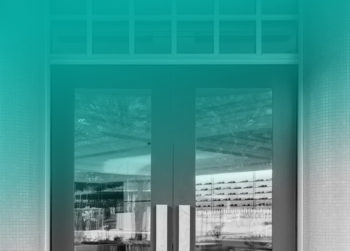Bringing Awareness to the Dangers of Secondhand Smoke and Vape
 Secondhand smoke and vapor can hurt everyone exposed to it — including children, the elderly, those with respiratory illnesses, pets and even those who inhale it outdoors.
Secondhand smoke and vapor can hurt everyone exposed to it — including children, the elderly, those with respiratory illnesses, pets and even those who inhale it outdoors.
In light of the risks, Denver Public Health and the Colorado Department of Public Health and Environment have shared the facts through a series of community education events, including a recent tenant information night. Anyone living in multi-unit housing — including apartments, condos and some subsidized housing — could be exposed to smoke or vape in the air that is shared between units. Not all housing facilities enforce smoke-free policies.
The requests for smoke-free units in affordable housing locations across Colorado have increased dramatically in recent years as more people understand the dangers of involuntary exposure to cigarette or e-cigarette smoke and vapor coming from their neighbors. Between 2015 and 2019, the number of housing authorities that have adopted no-smoking policies increased by 150% in the state.
Secondhand vape exposes people to cancer-causing chemicals, heavy metals, artificial flavoring and ultrafine particles.
In multi-unit housing, some tenants are also exposed to third-hand smoke, which develops when gasses and small particles in cigarette smoke are deposited on the surfaces they come in contact with. Toxins can stay on walls, furniture and cabinets indefinitely and form cancer-causing compounds, increasing in toxicity over time.
 Denver Public Health says that tenants who are not sure about the smoking policy in their community should reach out to their property manager. Under the newly expanded Colorado Clean Indoor Air Act, smoking and vaping are also not permitted within 25 feet of the main entrance to a restaurant or public building. This law is enforced when members of the public report incidents, so community participation is needed to ensure the new rules are followed.
Denver Public Health says that tenants who are not sure about the smoking policy in their community should reach out to their property manager. Under the newly expanded Colorado Clean Indoor Air Act, smoking and vaping are also not permitted within 25 feet of the main entrance to a restaurant or public building. This law is enforced when members of the public report incidents, so community participation is needed to ensure the new rules are followed.
If anyone experiences a secondhand smoke violation either in a multi-unit housing situation or near the entrance to a public building, they can call 3-1-1 in Denver County, or call or email their local public health department to report a concern. Local public health authorities can then reach out to property owners and authorities as necessary to enforce local laws. When looking for a place to live, tenants should proactively ask if properties have smoke-free policies in place.
Additional resources can be found at COSmokefreeHousing.org and on the Multi-Unit Housing Page of this website.